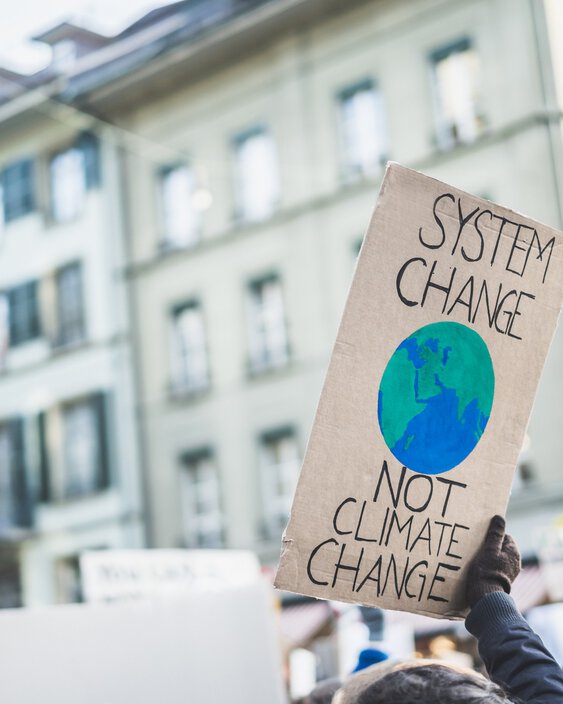
Climate change litigation and its impact on (re)insurance
Climate change litigation is gaining momentum worldwide – shaping policy, challenging corporate behaviour, and redefining accountability. With lawsuits targeting everything from fossil fuel giants to financial institutions, the ripple effects are reaching the (re)insurance sector. Liability lines such as D&O, professional indemnity, and general liability are increasingly exposed, making climate-related legal risks a growing concern for insurers.
Loading ...
Climate Change Litigation (CCL) is shorthand for a range of different legal proceedings related to climate change matters and is becoming increasingly common across a broad spectrum of actors and industries.
A growing wave of climate litigation
The number of reports detailing the adverse effects of human-linked greenhouse gases is growing rapidly – alongside a surge in climate change litigation worldwide. About 3,000 climate litigation cases seeking to hold governments and corporations accountable for their actions have been filed around the world during the last 40 years. The cumulative number of climate change-related cases has seen a dramatic increase during the last decade.
New types of climate related actions are also emerging, including lawsuits brought by activists to raise awareness on climate issues, lawsuits seeking to challenge policymaking to make it more climate-aligned, and last but not least, lawsuits against governments and the private sector. Over time, climate change cases have been brought by a diverse set of actors. Climate change litigation as a means of raising awareness of the urgency of climate change will continue to grow. Likewise, the range of claims and defendants will continue to diversify, reflecting an increased understanding of the role that multiple actors will need to play in the transition to a net-zero global economy.
Strategic lawsuits shaping climate policy
As the landscape of climate litigation expands, it is interesting to observe that the number of 'strategic' cases is dramatically on the rise. These are cases where claimants aim to drive broader societal change. For the most part, the goals of the claimants in such cases will include advancing climate policies, creating public awareness, or changing the behaviour of governments or industry actors. As a consequence, court decisions and settlements in climate cases can influence government policies and corporate practices related to climate change.

Corporate accountability under scrutiny
There are currently several ongoing climate cases worldwide against the largest fossil fuel companies – the so-called "Carbon Majors". Many of these cases seek to establish corporate liability for past contributions to climate change, often including arguments about deception and disinformation on the part of the companies. Beyond the "Carbon Majors", corporate actors in sectors such as food and agriculture, transport, plastics, and finance are increasingly being targeted. At the same time, a growing number of claims focus on financial risks, fiduciary duties and corporate due diligence, which directly affect not only fossil fuel companies, but also banks, pension funds and asset managers. Many of these cases consist of claims raising the lack of or insufficient disclosure of climate-related information to protect shareholders, consumers and investors. Intentional, deceptive action also constitutes the basis for the so-called 'greenwashing' cases. These are based on inconsistencies between discourse and action on climate change and arise when marketing campaigns are said to be misleading and overstate advertised performance or benefits.
(Re)insurance liability lines facing new pressures
In the (re)insurance industry, a whole range of lines of businesses could be affected by CCL. In view of the private sector exposure and the targeting of fiduciary duties, corporate due diligence and misrepresentation of product properties, it is likely that general liability, professional liability and directors' and officers' (D&O) covers might be hit. The (re)insurance industry and its regulators are aware of a possible exposure and are already taking measures to assess the risk. Nevertheless, the uncertainties of transition risks (i.e. policy, legal, technology and market risks) across future time horizons will pose challenges for (re)insurers in conducting climate risk assessments across all aspects of the insurers’ lines of business.
Legal uncertainty and coverage challenges
In view of these lawsuits and further upcoming regulatory rules which are likely to impose stricter environmental disclosure obligations on private corporations it is to be expected that the exposure on D&O covers will increase. Apart from the increasing exposure under D&O covers (re)insurers need to monitor court rulings regarding whether the underlying complaints constitute an occurrence under the respective liability insurance policy and thus establish a "duty to defend" of the insurer. They will also need to follow the discussions regarding the coverage of claims based on the public nuisance theory under commercial general liability policies.